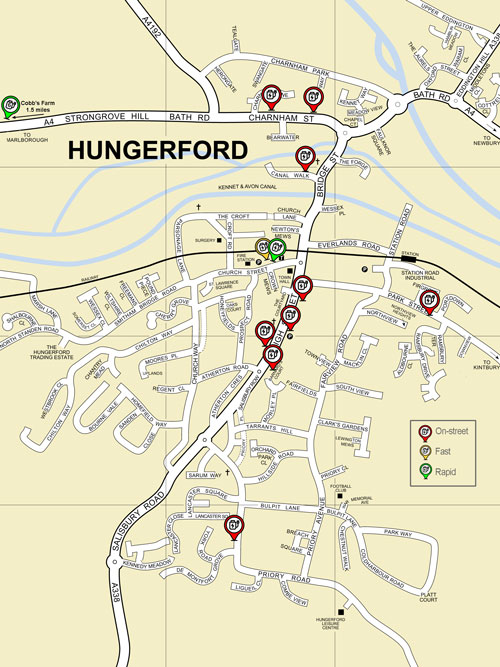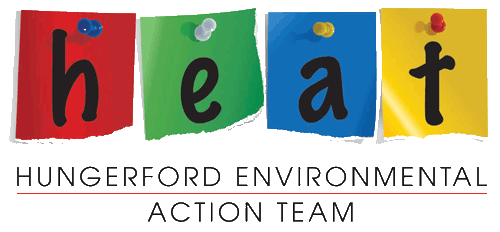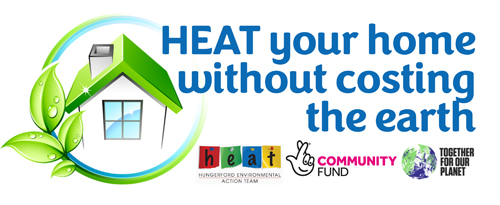Frequently Asked Questions
{click on a question to show the answer}
What is HEAT?
The Hungerford Environmental Action Team is a group of local people interested in their community and environmental issues. Membership is open to anyone who lives in the Hungerford area.
We hold regular and one-off activities depending upon the interests of HEAT members.
The History of HEAT
Back in 2006 there was increasing local and national concern about climate change. The Al Gore film "An Inconvenient Truth" was screened to members of the Hungerford Town Council at the Corn Exchange. The Hungerford Town Council's Environment and Planning committee regarded the issue of climate change to be beyond their remit with existing resources. Following the expression of public opinion at the Annual Parish Meeting that year the Hungerford Environmental Action Team was established.
What sorts of things does HEAT do?
See our Projects page.
How can I join HEAT?
You would be very welcome. Come along to one of our monthly meetings or send us an email.
I don't have a lot of spare time. What can I do to help?
Even if you don't have much time to volunteer, we welcome your ideas. If you have a little more time we would like to hear what you would be willing to do and how much time you can volunteer.
Send an email to heat_hungerford@yahoo.com.
How is HEAT funded?
It's not! However, we have recently applied for, and were awarded, some National Lottery fund money to help with our Home Energy Initiative.
What and where can I recycle near Hungerford?
Recycling locations and more can be found on our Information page.
Where can I recharge my electric vehicle in Hungerford?

What can I do as an individual to be kinder to our environment?
- Be travel conscious - consider options other than a fossil-fuel powered car or plane.
- Use your purchasing power - find out where products come from and check that fair, ethical and sustainable methods have been used.
- Grow your own vegetables.
- Make things last as long as possible.
- If you need to own a car, swap to an electric vehicle.
- Plant a tree - or two?
- Sign petitions, write letters, peacefully protest.
- Shop locally - some suggestions on our Information page.
- Keep up to date with new products and technologies that help reduce carbon emissions.
- Join HEAT!
I have heard about Hydrogen Fuel Cells - what are they and how are they used?
A fuel cell electrochemically combines hydrogen and oxygen taken from the air. The only outputs are electricity and water.
Excess electricity produced by renewable power generators (wind turbines and solar panels) can be converted into hydrogen which can then be used in fuel cells. This 'green' hydrogen, when used in a fuel cell, is considered to be a very clean way of generating power.
Fuel cells provide energy on demand - even when the wind is not blowing and the sun is not shining. They are therefore a reliable power supply throughout both day and night, 365 days a year.
Hydrogen can be used for heating homes and fuelling cars, trains, and planes. Unfortunately there is a current lack of hydrogen infrastructure (refuelling stations, production and storage hubs) in the UK so it is not yet a viable energy source.
My question isn't here!
Contact HEAT by email and we'll get back to you.


 See our useful
See our useful

